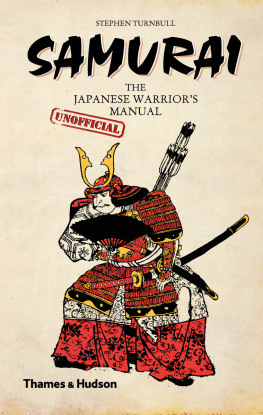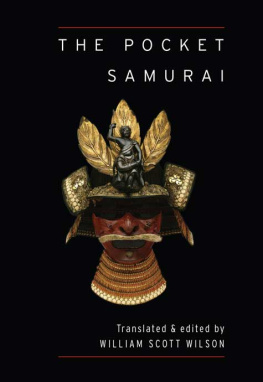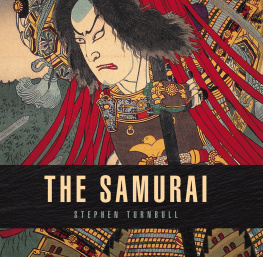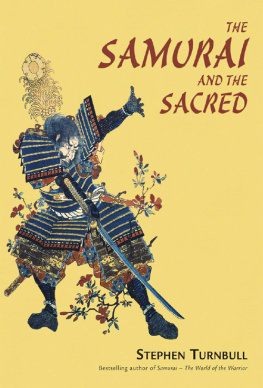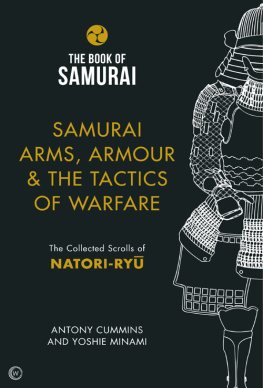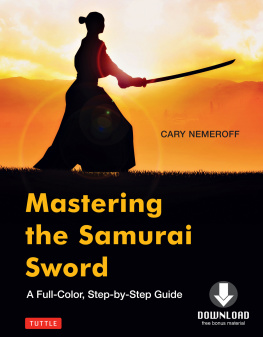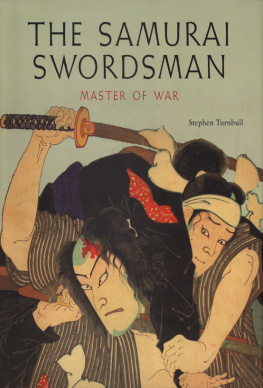MOTOORI NORINAGA, ON THE EMPEROR AND JAPAN

Why Our Nation is Superior to All Others
Japan is the Land of the Gods, uniquely favoured by Heaven above all other nations. Later in this book you will read of these kami (gods) and the many blessings they have bestowed upon us, among which, of course, is the great treasure-house of martial virtue as exemplified by samurai like you. Is it not by the swords of the samurai that we are known and feared? Indeed it is, but in addition to the knowledge of our virtues spreading across the seas, our land is uniquely favoured by good government.
All this is due to the Will of Heaven, a fact that may be readily appreciated by comparing the favourable situation Japan enjoys to the position of the celestial kingdom of China. Her emperors have received from Heaven a divine mandate to rule, but it is a mandate that can be removed from them at any time. Thus the dynasty of the Tang was replaced by that of the Song, and the Song by that of the Yuan, and the Yuan by the Ming who currently reign; even the glorious Ming may one day have Heavens mandate taken from them. Not so Japan, for Heaven bestowed upon our first emperor an everlasting mandate, and it is his family that reigns now and will do so forever.
But Japan is twice blessed, for it was the will of a certain emperor many centuries ago to pass on this great burden of kingship to a superlative samurai called Minamoto Yoritomo, giving him the title of shogun. Yoritomo was a man who, by the exercise of his virtue and military glory, had ensured that Japan was at peace. He was the first shogun, and His Most Excellent Highness Tokugawa Hidetada is the present incumbent of that illustrious office. When you are grown to manhood you will be part of his great government, and will occupy some small but important position in the great chain of loyalty and benevolence by which Japan is ruled so wisely and so well.
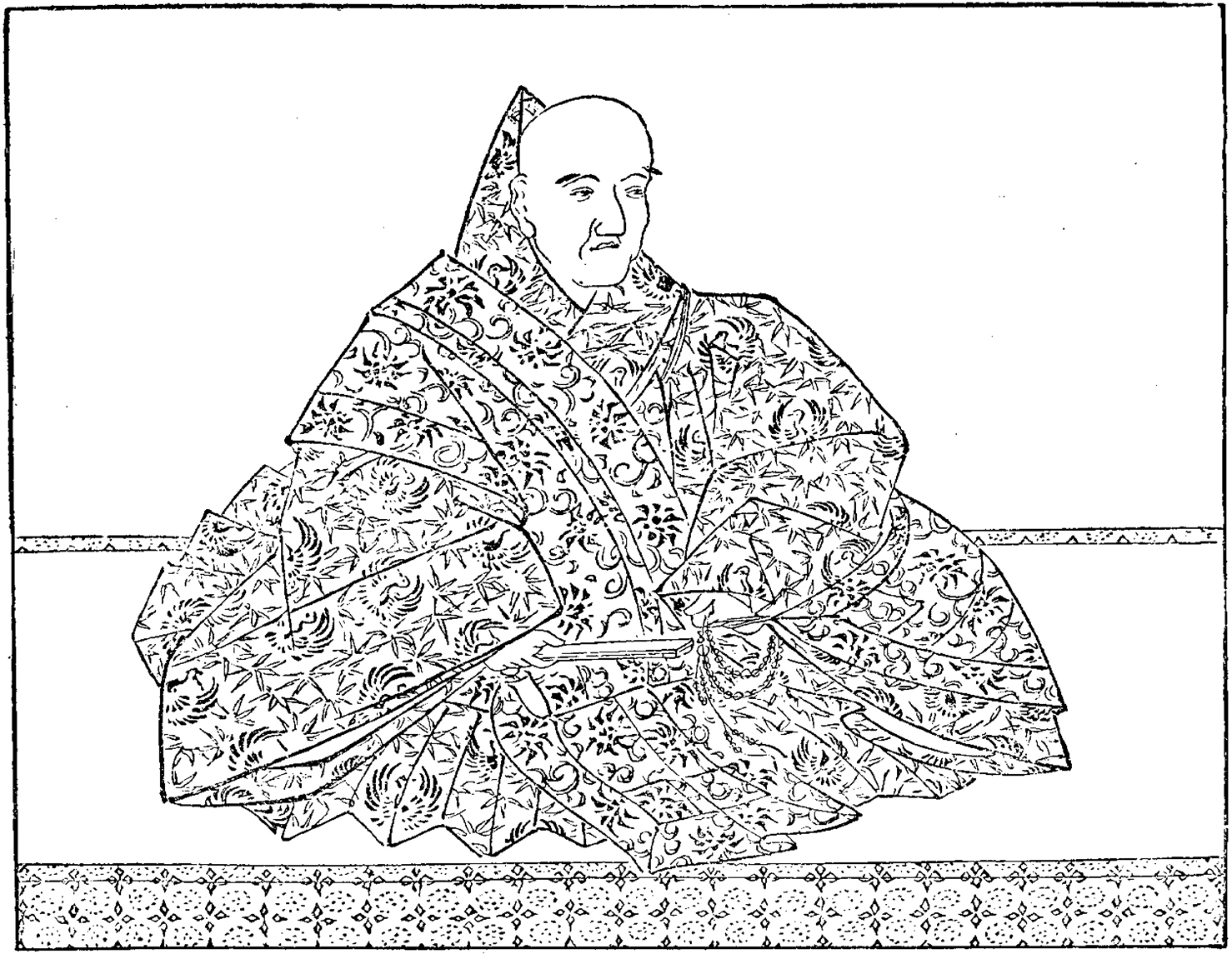
Emperor Go-Uda, who was reigning at the time of the Mongol Invasions of the 13th century, a glorious period in samurai history when the various clans stood united as never before. It was only on occasions such as this that an emperor became memorable.
How shall I illustrate this great chain of harmony? Think if you will of the peerless Mount Fuji, the perfect cone of which enchants the eyes of all who see it. Imagine that Fuji is Japan itself, and that those who rule our land are seated thereon. On the summit sits the emperor of Japan. None is nearer to Heaven than he, and this is rightly so, for he is heaven-descended. Myriad years ago, Amaterasu (the Goddess of the Sun, whose life-giving radiance fills all) sent her descendant to earth to become our first emperor, and from him succeeds in an unbroken line His Divine Majesty The Emperor Gomizuno-o whose own radiance presently illuminates us.
But see, young samurai, there is one seated beside him who, at the emperors behest, rules this land so that the Divine Son of Heaven may exercise his superior virtue unhindered by the tedious business of government. This is our shogun. Alas, for many years there was no shogun because of the actions of sinful men, but within my own most happy lifetime the position was restored by His Most Illustrious Highness Lord Tokugawa Ieyasu, and it is his son, His Most Excellent Highness Lord Tokugawa Hidetada, whom you now see seated beside the emperor.
You will also see that around these two illustrious figures sit many in court robes, serving them in innumerable ways. These men are wise counsellors, scholars and administrators, who belong to the families of the emperor and the shogun. Now look below these imperial servants, for stretched out in their countless thousands are men such as you the samurai of Japan. So multitudinous are they that the slopes of Mount Fuji are rendered invisible by their glittering host. Our eyes move further downwards, and thousands more people are seen. Their appearance is vulgar but their toil is honourable: they are the farmers, whose blessed role it is to grow the rice, which is itself a divine gift.
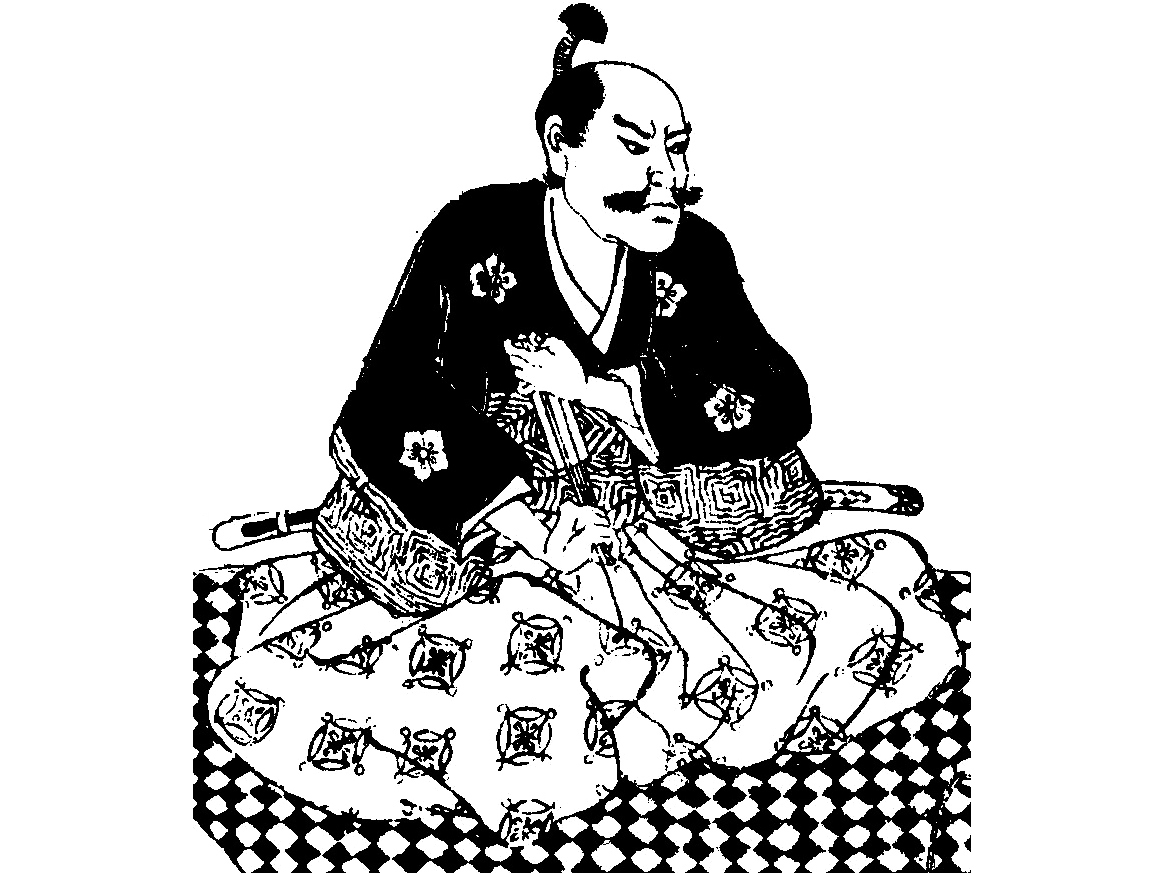
A samurai shown indoors, seated and holding his fan. He wears only the shorter sword (wakizashi), his longer katana having been deposited at the door. This is a necessary courtesy required by ones host.
And now we see a further ring of people. Their appearance is not rough, for many wear fine silks, but their trade is vulgar: these are the merchants who engage in commerce. From this, many have grown so rich that their wealth may exceed that of noble samurai, whose treasure, of course, lies not in gold. Within their ranks may be noted honoured craftsmen who forge swords or carve ivory, who paint scrolls or print books. That such beauty may come from people so coarse! It is a mystery indeed!
Below them we have a ring of diverse people whose position in society places them upon the lower slopes. Here may be found actors, singers, puppeteers, conjurers, dancers and other sordid persons. Yet among them walk doctors and priests, who are men of virtue and learning. Had Heaven blessed them with higher birth they might well be listed among the number of the samurai. Alas for them, it was not to be.
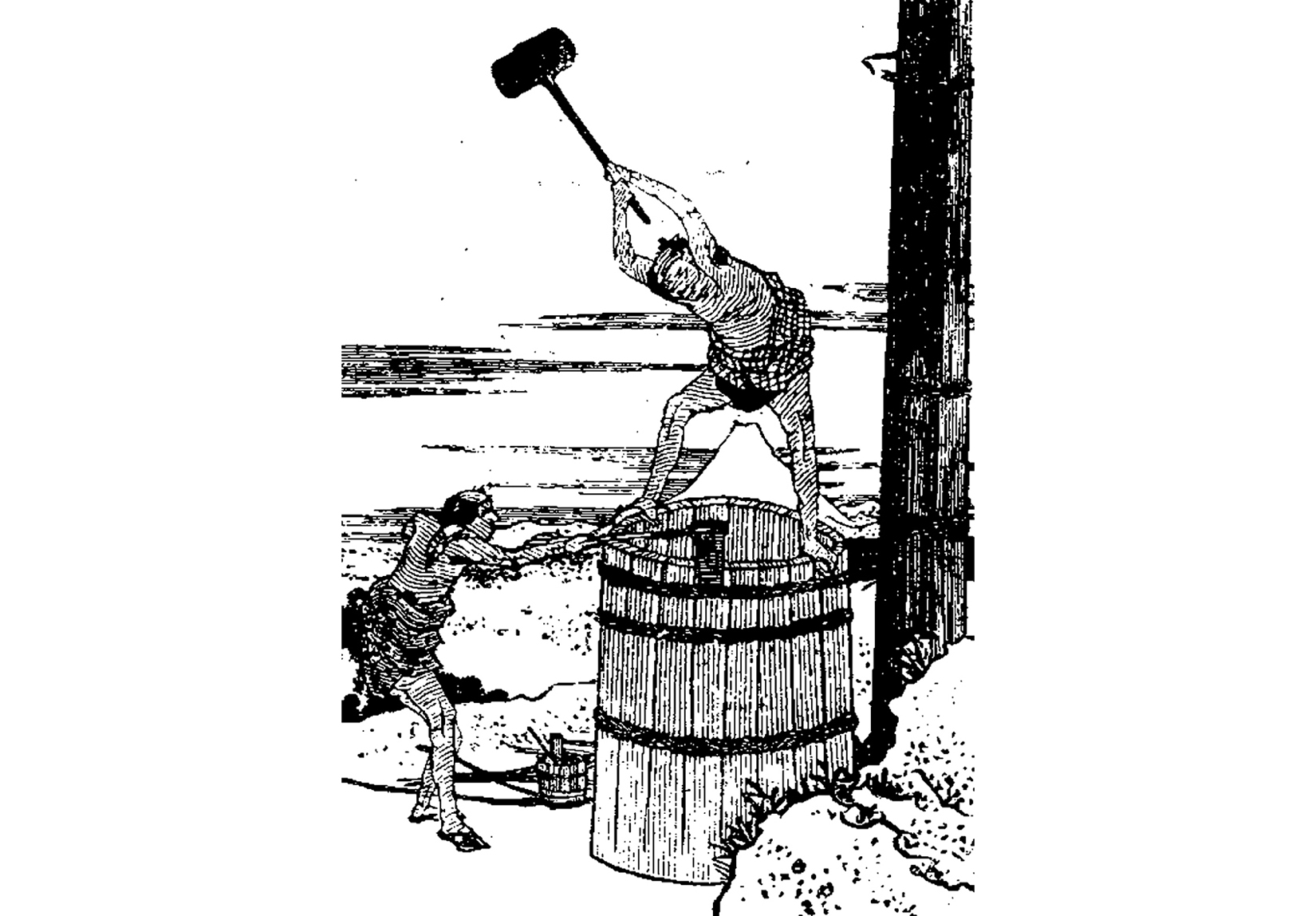
Two coopers making a large wooden sake barrel. This is a task typical of the craftsmen and merchants who live in castle-towns in a social position vastly inferior to that of the samurai.
Finally, scurrying betwixt the throngs and despised by them are the lowest of the low. These people are scarcely human because their trade is with filth and with animals. They kill beasts and make leather. They also execute criminals and dispose of corpses. Such people are to be shunned, as are the beggars, the murderers and the outcasts who also hide in the shadows, unenlightened by the radiance flowing from the great mountains peak.
Thus it is that the benevolence of the great is passed down to the vulgar, and the loyalty of the sordid is passed upwards to the good. So it was written by the sage Confucius, who saw that the government of men must be harmonious, and that harmony could only be achieved in this manner. Wherever a man has been born on this mountain, there he will surely stay. You, young man, are blessed to have been born a samurai, and so you will serve those above and rule those beneath, displaying the virtue that has been bestowed upon you.
A History of Japan to the Present Happy Time
As noted above by His Most Excellent Highness, we are indeed living in an age of peace and plenty, where the mountains spew forth gold and supplicant barbarians vie with each other to lay their tribute at our feet. Yet this most blessed and auspicious situation was achieved only at the cost of the blood of the samurai, to whose ranks you now aspire. I most unworthily begin this book by presenting an account of how the samurai of the Tokugawa family triumphed over their foes to make Japan what it is today.
Many years ago the words samurai and shogun were both unknown. In those unenlightened times the emperors, taking their cue most unwisely from the example set by the Tang dynasty of China, decided that peace within their realm could be attained by fielding an army consisting of conscripted peasants. How misguided they were! As a result the city of Nara, created the first permanent capital of Japan in the year 710, became the target of rebels and malcontents, while our borders were threatened by hordes of barbarians from across the seas. How fortunate it was for these early emperors that there also existed in Japan proud families who, by the sweat of their own labour, had caused rice fields to flourish in lands thought inhospitable, and had favoured commerce and industry within their own modest estates. These landowners, being faced with understandable jealousy from neighbours, had been forced to resort to arms to defend their territories, thereby waxing strong in the martial virtues. In an act of unparalleled loyalty and generosity towards the Imperial Son of Heaven, these same landowners most kindly made available to the imperial household their own armies of fierce warriors, whom they called those who serve i.e. samurai. Thus did samurai become servants of the emperor; vanquishing his rebels, securing his borders and covering themselves in martial glory.
Next page
